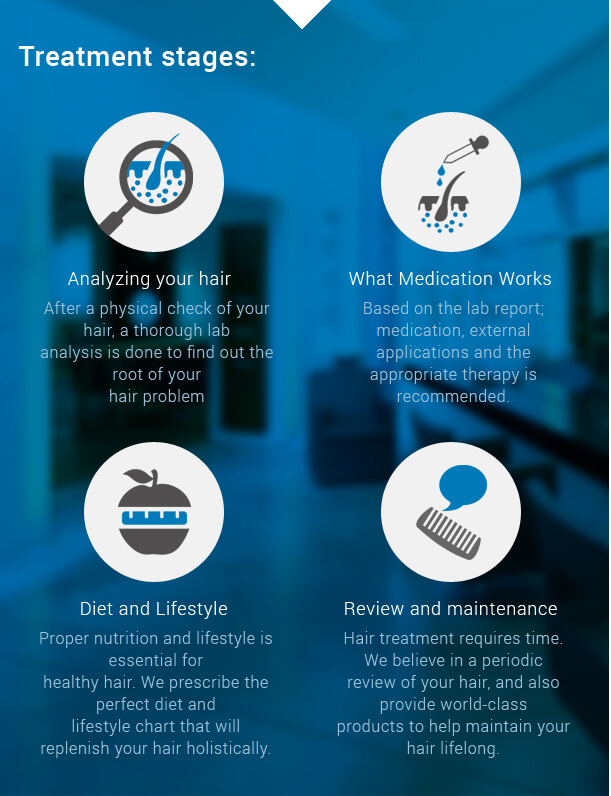Dermatitis

What is Dermatitis?
The inflammation of skin is called dermatitis. Dermatitis occurs in many forms and can have many causes. Skin affected by dermatitis usually becomes itchy, red, swollen and dry. A severe form of dermatitis results in painful cracks, crusty scales and blisters that ooze fluid.
Dermatitis of the scalp is also indicated by scaling and redness. If it is severe, it may lead to hair loss. Any chemical treatment can lead to dermatitis. Colouring can also cause dermatitis as the person is going to repeatedly use it.
Types of dermatitis –
Contact dermatitis- the skin develops an itchy pink or red rash. It can further be an irritant contact dermatitis or allergic contact dermatitis.
Nummular dermatitis- coin-shaped red plaques develop on the skin of hands, arms, legs, and torso. Nummular dermatitis is more common in men during the age of 55 to 65.
Atopic dermatitis (eczema)- the skin itches, scales, swells and sometimes develops blisters.
Seborrheic dermatitis- greasy, reddish or yellowish scaling on the face, scalp, genitals, skin under the breasts, creases along the nose, and other hairy areas.
Stasis dermatitis- oedema, fluid build-up, pooling of blood and irritation around the ankles.
Causes
Genetic- Atopic dermatitis can be caused due to genetic factors. This problem runs in families, and the offspring are very much likely to inherit eczema.
Stress- Emotional stress mostly triggers eczema. Stress further causes the skin to flare up leading to the worsening of symptoms.
Cold weather- The skin dries up due to its decreased moisture content in the cold weather, which results in a scaly, crusty, and reddish skin, and appears as skin allergy on the face and arms.
Few medical conditions- people who have thyroid disturbances tend to have extremely dry skin can experience dermatitis frequently.
Causes of various types of Dermatitis
Contact dermatitis- cosmetics, hair dyes, perfumes, and skin-care products
Irritant contact dermatitis- nail polish remover, antiperspirants, soaps, detergents, some synthetic fibres, formaldehyde (found in various products such as polishes, non- iron fabrics etc.)
Allergic contact dermatitis- jewellery containing nickel or cobalt, wearing rubber gloves.
Nummular dermatitis- taking very hot showers or living in a dry environment.
Atopic dermatitis (eczema)- stress, asthma, allergies
Seborrheic dermatitis: maternal hormonal changes when seen in newborn, Poor scalp hygiene, Androgenic alopecia
Stasis dermatitis- poor circulation in people with congestive heart failure or varicose veins.
Symptoms
- Redness on the scalp- the scalp appears red, with an itchy rash and flaky scales. These symptoms are associated with seborrheic dermatitis.
- Oily scalp with eruptions- the scalp that remains oily develops redness, burning, swelling, and itching.
- Boils with lots of itching- inflamed itchy patches occur during flare-ups and then become red. These can appear in any part of your body, especially the face and involves the areas like breast, groin, under the folds of arms, and around the navel.
Risk Factors
- AIDS- HIV infection mostly causes seborrheic dermatitis as the skin manifestation. It occurs when the CD4 counts drop in the individuals who have AIDS.
- Psoriasis– people suffering from psoriasis have a disorder of the overproduction of skin cells. The dead cells accumulate in the scales leading to the redness, and itching of the skin. This condition increases the likelihood of dermatitis.
- Acne- The blocked hair follicles containing dead skin cells and sebum can also elevate the risk of dermatitis.
- Autoimmune disorders like rosacea elevate the risk of dermatitis by narrowing the arteries and veins. It is caused due to the attack of the immune system on blood vessels.
Dermatitis Treatment
RichFeel offers Seborrheic dermatitis treatment, contact dermatitis due to hair cosmetics and atopic dermatitis treatment using the following approach-
- After a careful physical and Capilloscopy examination, the severity of the disorder is assessed.
- Shampoos having ingredients useful to control dandruff are advised with specific frequencies.
- Topical emollients are given to soothe the inflamed scalp.
- Patients are advised to stop oiling their scalp if it is known to cause aggravation.
- A specific amino acid is given in therapeutic dosage only after ruling out uncontrolled blood pressure and increased levels of uric acid. ‘If needed’ – what is needed and what is the purpose?
- Guidance is given so as avoid any relapses





